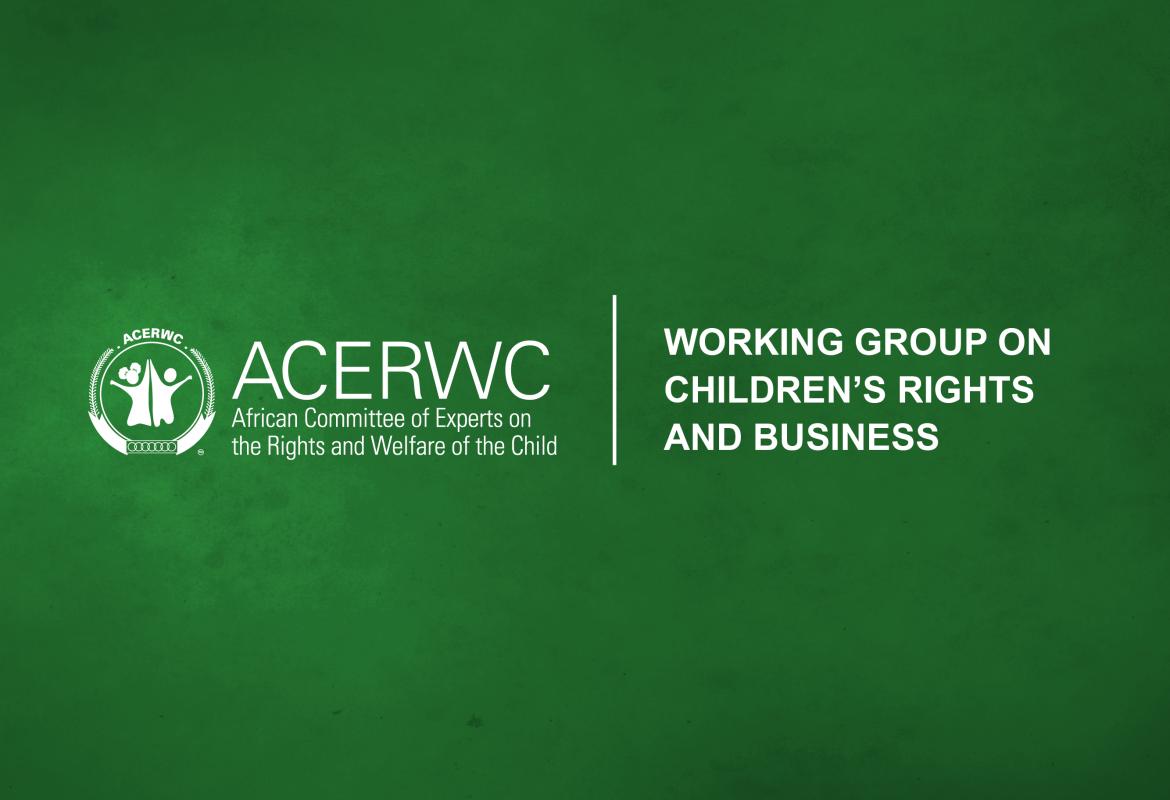STATEMENT OF THE AFRICAN COMMITTEE OF EXPERTS ON THE RIGHTS AND WELFARE OF THE CHILD WORKING GROUP ON CHILDREN’S RIGHTS AND BUSINESS ON THE THEME OF THE DAY OF THE AFRICAN CHILD 2025: PLANNING AND BUDGETING FOR CHILDREN’S RIGHTS
A CALL FOR INCREASED INVESTMENT IN CHILDREN IN AFRICA
The ACERWC Working Group on Children’s Rights and Business reflects on the DAC 2025 theme, “Planning and Budgeting for Children’s Rights: Progress Since 2010”, recognizing the progress made over the past 15 years especially in education, health, and social protection spending, while highlighting a critical, yet underutilized partner in this agenda: the private sector.
Since 2010, several countries have expanded budget allocations for children, enhanced education and health programmes, and introduced social protection interventions such as school feeding and targeted cash transfer programmes. Some countries now include child-specific allocations in national budgets and have adopted economic policies aimed at improving children’s well-being.
Africa’s private sector has also grown significantly, driving innovation, employment, and economic investment. However, this growth has not always translated into improved outcomes for children. Despite the efforts of many countries, public investment in children remains below global benchmarks. Average education spending in Africa remains at 3.5% of GDP, and health spending at 5.3%—both below the targets set in the Incheon, Dakar, and Abuja Declarations.
Furthermore, the continent continues to contend with challenges such as weak regulatory frameworks, illicit financial flows, limited child participation in budgeting processes, and persistent governance concerns. The misuse of tax incentives, the operation of shell companies in secrecy jurisdictions, and weak oversight mechanisms have all contributed to significant financial outflows. According to UNCTAD and UNECA, Africa loses up to 5% of its GDP annually due to illicit financial flows, amounts that in some countries surpass national budgets for education, health, or social protection. These losses severely constrain the capacity of governments to invest in children and address widening inequalities.
Illicit financial flows undermine governance, weaken institutions, and entrench aid dependency. Global and regional shocks such as the COVID-19 pandemic, the climate crisis, and armed conflicts have further strained national budgets. Halting illicit financial flows to expand the tax base has therefore become a matter of urgency.
Addressing these systemic challenges requires strengthened regulatory frameworks, responsible business practices, international cooperation, and transparency. Member States, civil society, the private sector, and global partners must collaborate to stop illicit financial flows, not only for economic survival but for children’s rights and the continent’s future.
Member States are obligated to ensure effective resource mobilization and allocation through fiscal and regulatory frameworks. But if policies are not child-sensitive, they may increase the cost of goods and services essential to children, further marginalizing the most vulnerable.
The ACERWC Working Group on Children’s Rights and Businesses calls for a systemic shift: the private sector must become a strategic and accountable partner in advancing children’s rights, not merely through charitable actions, but by embedding child-sensitive considerations into core operations, supply chains, product design, worker conditions, and service delivery.
Accordingly, the ACERWC Working Group on Children’s Rights and Business encourages AU Member States to:
Establish robust, transparent budget systems that clearly show expenditure on children’s rights programmes.
Conduct impact assessments to evaluate how children’s budgets achieve targeted outcomes.
Ensure funding for children’s programmes through international agreements, corporate social responsibility and donations.
Design effective tax systems that mobilize resources for children without disproportionately increasing the cost of basic goods.
Regulate markets to ensure access to affordable, safe products for children.
Adopt multisectoral approaches to integrate child rights into sectoral investment planning.
Institutionalize participatory budgeting and planning that involves children, private sector actors, chambers of commerce, civil society, and informal sector stakeholders.
Include budget reporting on business-related commitments in State Party reports to the ACERWC.
The private sector is encouraged to:
Integrate child rights considerations into due diligence processes, consistent with the UN Guiding Principles on Business and Human Rights and the Children’s Rights and Business Principles.
Engage in partnerships aligned with national development plans, supporting initiatives like inclusive education, maternal and child health, food fortification, and ethical marketing.
Ensure partnerships follow rights-based frameworks that guarantee equity, accountability, and sustainability.
Contribute fairly to domestic resource mobilization through responsible taxation practices and take active measures to prevent illicit activities such as tax avoidance, mis-invoicing, corruption, and money laundering, which undermine the tax base essential for investments in children’s rights and services.
Increase child-sensitive corporate social responsibility initiatives, prioritizing the most vulnerable children.
Support targeted social protection programmes—both in-kind and cash transfers through private partnerships.
Civil society organisations are encouraged to:
Advocate for increased public allocations to children, leveraging influence to drive sustainable, systemic change.
Engage the private sector to increase child-sensitive corporate social responsibility initiatives, prioritizing the most vulnerable children.
The theme of the Day of the African Child is a powerful reminder that planning and budgeting for children’s rights is not optional, it is both a legal and moral obligation. The private sector must be held accountable for its impact on children and must play a proactive role in enabling inclusive, sustainable development, in line with the African Charter on the Rights and Welfare of the Child, Agenda 2040, and Agenda 2063.
Let us unite our efforts to engage the private sector as a strategic ally in strengthening public investment for children. Together, we can build enabling systems that support an Africa truly fit for children.







